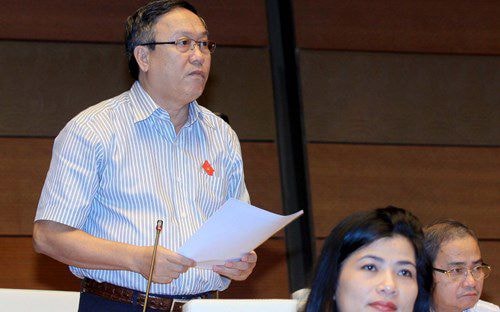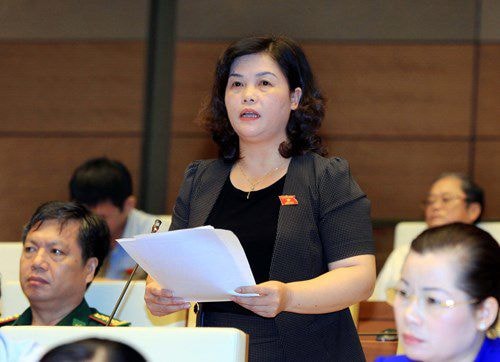"Paying money to escape the death penalty is condoning corruption"
One of the issues that National Assembly deputies focused on when discussing the Penal Code (amended) on June 16 was the abolition of the death penalty for some crimes and the prosecution of legal entities that violate the law.
Loose regulations will create loopholes for "national disasters"
The draft Penal Code (amended) stipulates that the death penalty shall not be carried out on those sentenced to death for crimes with economic purposes who, after being sentenced, have actively overcome the consequences of the crime they committed, actively cooperated with authorities in detecting, investigating, and handling crimes, or have made great achievements.
Many National Assembly deputies disagreed with this provision and agreed with the assessment of the National Assembly's Judiciary Committee - the agency examining the draft law - that, in the context of the death penalty still being maintained, the regulation of cases where the death penalty is not carried out must be considered very carefully to ensure the strictness of the law and create consensus in society.
Delegate Do Ngoc Nien (Binh Thuan) said that this regulation is not equal to other death sentences, creating loopholes for corruption and taking advantage of using money to exchange lives.
 |
| Delegate Do Ngoc Nien (Binh Thuan) |
According to the delegate, not carrying out the death penalty under the above conditions is tantamount to encouraging, condoning, and covering up corruption. Meanwhile, corruption is a crime with economic purposes, a national disaster, undermining the country, and threatening the survival of the regime.
“We have been determined to prevent and fight corruption, but so far the results have not been as expected, and this type of crime has become more sophisticated and complicated. Public opinion is extremely dissatisfied, demanding that we take more decisive action,” the delegate expressed.
Delegate Do Ngoc Nien expressed that in order to prevent and eliminate corruption, there should be more severe penalties, but we do the opposite. The State needs to fully recover assets in corruption cases, but not lose the trust of the people, changing the balance of justice. For money, reduce the penalty by paying money to remedy the consequences.
“Applying this law is no different from abolishing the death penalty for corruption. Doing so will certainly cause chaos in society and the people will certainly not forgive us if the law is passed. Therefore, I propose to remove this point,” said the delegate.
Beneficial for the rich
According to delegate Giang Thi Binh (Lao Cai), the expression in the draft law is still very general, it is not clear what is meant by "fundamentally overcoming the consequences caused by oneself", it is not clear which group of crimes has economic purposes.
In fact, crimes of corruption, property rights infringement, and drug crimes all have economic purposes. If not clarified and regulated strictly, it will lead to abuse and arbitrariness in the application of the law.
 |
| Giang Thi Binh (Lao Cai) |
Sharing the same view, delegate Nguyen Thi Kha (Tra Vinh) also suggested that it is necessary to consider very carefully to ensure the strictness of the law, creating fairness in society.
The delegate raised the question: What is the fundamental solution to the serious consequences? The purpose of drug trafficking is economic. Regulations like the draft law benefit the rich and powerful.
“If they are not discovered, they will live a carefree and luxurious life all their lives. When discovered, but with money, they can still buy their lives. That makes the law unfair and distorted. The State budget really needs money but not at the expense of all dangers,” the delegate stated./.
According to VOV






